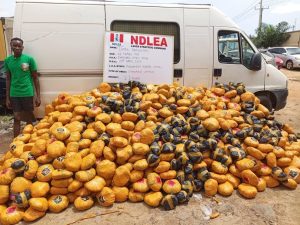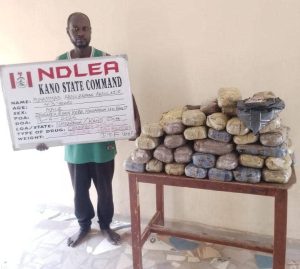News
Presidency affirms Lokpobiri’s stand on petrol price

By Francesca Hangeior
The Presidency has explained why government agencies cannot engage in the ongoing price dispute between Nigerian National Petroleum Company Limited and Dangote Refinery, citing the fact that both enterprises are private.
In a statement on Friday, by the Special Assistant to the Honourable Minister for Petroleum Resources (Oil), Senator Heineken Lokpobiri, on media, Nnaamaka Okafor, the Presidency corroborated the minister’s stand on the pricing feud between the NNPCL and Dangote Petroleum Refinery.
Recall that Lokpobiri had stated shortly after a brief meeting he had earlier this month with the Vice President, Kashim Shettima, that the price of petrol in the country could differ in various locations, but by the time there is the availability of products across the country, the price will be stabilised.
The minister further stated that the sector is deregulated and therefore the government is not responsible for fixing prices.
The minister had said, “What is important is that the government is not fixing prices. This sector is deregulated. And we believe that with the availability of products, the price will find its level. And this is important for Nigerians to know.
“There is enough product in the country to be able to meet the demands of Nigerians, there should be no panic buying. And we also believe that Nigerians need to know that the government is not fixing prices.
That is what I want to convey to Nigerians.”
However, Okafor in the statement on Friday, noted that while corroborating this during a press briefing, the Special Adviser to the President on Information and Strategy, Mr.
Bayo Onanuga, also emphasised what Lokpobiri had said earlier that both entities operate independently in a deregulated market.
He said under the Petroleum Industry Act, NNPCL functions autonomously despite government ownership.
“The PMS (Premium Motor Spirit) field, the PMS regime, has been deregulated. Dangote is a private company. NNPCL should not forget it’s a limited liability company. Whatever controversy both of them are having is their own problem.
“They are operating, even if you go by the terms of petroleum industry act NNPCL is on its own, even though it’s owned by the federal government, the state government and local councils and everything, but it’s operating as a limited liability company.
“You can see what the private market has said that I think they find the NNPC or Dangote price too much for them. They will resolve to import fuel because they clear the market at the end of the day. It’s the consumer who benefits if a price war starts, if NNPC fuel is too much, the public market can go to the market and bring in their fuel and sell at the price that they think is very reasonable and profitable for them.
“So my answer is that, as far as this is concerned, the government is not dabbling into this controversy. Dangote as a private company is working on his own. NNPC is a limited liability company, and it has the right to fix the price of its own and so on,” the statement quoted Onanuga to have said.
Onanuga added that instead of intervening, the government plans to promote alternative energy solutions like Compressed Natural Gas, and CNG, offering a cheaper option for consumers and subsidizing conversion costs for vehicles.
He noted that the price difference is significant, with CNG costing about N230 per litre equivalent compared to PMS at about N850 per litre.
News
NDLEA nabs bandits supplier with drugs concealed in private part(Photos)
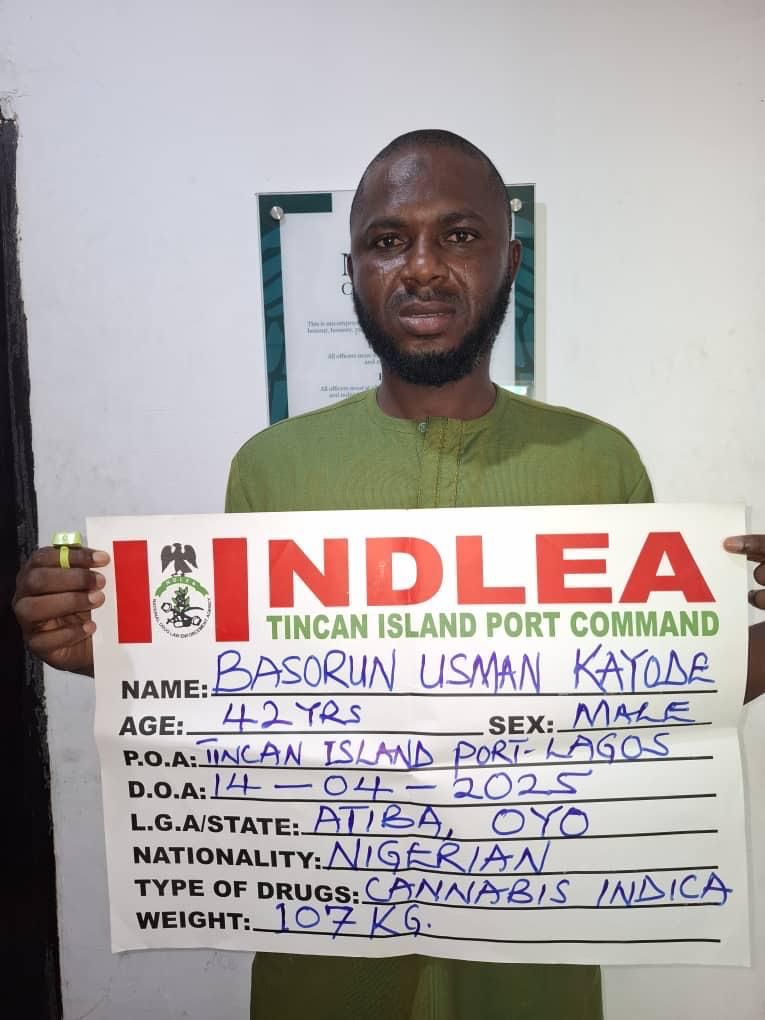
… intercepts cocaine in Saudi-bound religious books,
. ..recovers 563kg skunk, meth, heroin in Bayelsa warehouse, arrests 4; destroys cannabis farms in Edo forest
Operatives of the National Drug Law Enforcement Agency (NDLEA) have intercepted a shipment of cocaine concealed in 20 sets of religious books going to Saudi Arabia.
The cocaine consignment consisting of 20 parcels with a total weight of 500grams and buried in the pages of the religious books was uncovered at a courier company in Lagos on Tuesday 15th April 2025 when NDLEA officers of the Directorate of Operations and General Investigation (DOGI) were searching through export cargos going to Saudi Arabia at the logistics firm.
At another courier company same day, NDLEA officers intercepted five parcels of Loud, a strong strain of cannabis weighing 2.8 kilograms hidden in a carton coming from the United States of America.
In Kano, a 22-year-old supplier of illicit substances to bandits, Muhammad Mohammed, has been arrested by NDLEA operatives on patrol along Bichi – Kano road while heading to Katsina with 277 ampoules of pentazocine injection tied to his thigh and private part with Sellotape. He was intercepted on Sunday 13th April, while another suspect, Mohammed Abdulrahman Abdulaziz, 43, was nabbed same day at Research Rimin Kebe area of Nasarawa, Kano with 68 blocks of skunk, a strain of cannabis, weighing 30kg.
Not less than 557.2kg of skunk, 5.6kg of methamphetamine and 29.8grams of heroin were recovered from a house along Major General Isaiah Alllison Street, Opolo, Yenagoa, Bayelsa state where four suspects were arrested when NDLEA operatives raided the premises on Wednesday 16th April. The four suspects arrested during the raid include: Sarimiye Suwa Kurtis, 46; Roland Prosper, 34; Sarimiye Tare Paul, 45; and Fidelis Ugbesla, 46.
While a total of 1,100 kilograms of skunk were recovered from a delivery van with the driver, Ismail Abdullahi arrested in Surulere area of Lagos on Thursday 17th April, NDLEA operatives in Kaduna on Friday 18th April raided the hideout of a suspect, Ike Ani, 30, in Zaria, where no fewer than 31,950 pills of tramadol 225mg and diazepam were recovered.
In Kebbi, NDLEA operatives on patrol along Bagudo road on Friday 18th April intercepted a vehicle loaded with bags of charcoal coming from Malabil, Benin Republic. A search of the vehicle led to the recovery of 97kg skunk concealed in the sacks of charcoal. Three suspects: Abubakar Ibrahim, 50; Mustapha Aliyu, 32; and Bashar Lawali, 28, were arrested in connection with the seizure.
A 48-year-old Okafor Marcel was nabbed with 11.5kg skunk at Abatete, Anambra state while NDLEA operatives in Osogbo, Osun state on Tuesday 15th April arrested Ajala Mercy, 27, with 43 litres of skushi, a mixture of black currant, cannabis and opioids recovered from her room at Dada estate, Halleluyah area of the state capital.
Two cannabis farms in Egbeta forest, Ovia North East LGA, Edo state were raided by NDLEA operatives who destroyed 3,717.8625kg of the psychoactive plant on 1.487145 hectares and recovered 136.5kg of processed cannabis.
At the Tincan seaport in Lagos, a suspect Basorun Usman Kayode, 40, who has been at large for two years was arrested by NDLEA officers in connection with the seizure of 107kg Loud imported from Cannada in 2023, while another suspect, Dauda Yakubu who distributes illicit drugs within the seaport community was arrested by a team of operatives on Monday 14th April.
The War Against Drug Abuse, WADA, social advocacy activities by NDLEA Commands equally continued across the country in the past week. Some of them include: WADA sensitization lecture delivered to students and staff of St. Michael Anglican Primary School, Epe, Lagos; Community Grammar School, Ipoti Ekiti, Ekiti state; College of Education, Minna, Niger state; traders at Igbona market, Osogbo, Osun state; traders at Marian Market, Calabar, Cross River; drivers and others at Peace Mass Transit park, Upper Iweka, Onitsha, Anambra state, among others.
While commending the officers and men of DOGI, Kano, Lagos, Kaduna, Kebbi, Osun, Zone 13, Edo and Tincan Commands of the Agency for the arrests and seizures of the past week, Chairman/Chief Executive Officer of NDLEA, Brig. Gen. Mohamed Buba Marwa (Rtd) equally praised their counterparts in all the commands across the country for ensuring a fair balance between their drug supply reduction and drug demand reduction efforts.
News
NUJ-FCT Chairman Urges Journalists to Embrace Spirit of Easter

News
SAD! SEC DG says “we can’t recover N1.3trn Nigerians lost to CBEX ponzi scheme”
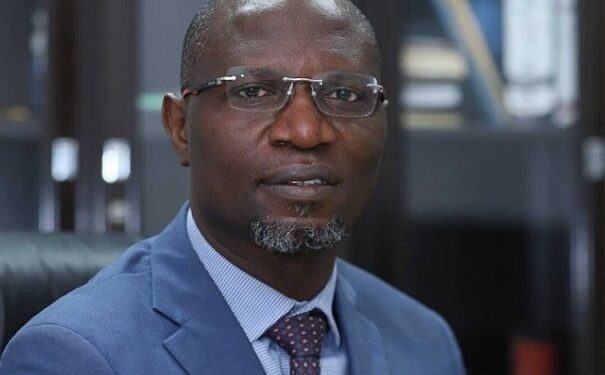
Dr Emomotimi Agama, the Director General of the Security and Exchange Commission (SEC), has explained that there is nothing the Commission can do to help victims of the CBEX scam recover their lost investments.
CBEX or Crypto Bridge Exchange, an unregistered online trading platform vanished last Monday with about N1.3 trillion invested by about 600,000 investors.
CBEX which had operated under ST Technologies International Ltd lured its victims with a 100 percent returns on investment after 30 days.
Asked by Sunday Vanguard if there is anything the Commission can do to help victims recover their money in part or in full, Dr Agama said: “There is nothing the Commission can do”.
He however expressed concern that Nigerians continued to invest in an unregistered digital entity without drawing the attention of the Commission.
“We are worried that this went on for long without anyone drawing our attention to it. That is why we are doing more enlightenment and asking people to come forward to report this for early detection.
How Nigerians can identify a Ponzi Scheme
He warned Nigerians against investing their money in Ponzi Schemes, saying such schemes make promises that are not real.
“You can identify a Ponzi Scheme when an entity makes offers that appear certainly untrue and are bogus. The definition we have in the ISA (Investments and Securities Act, 2025) clearly tells you that when an investment firm makes any promise that is almost totally unattainable, you will know that that is clearly a Ponzi scheme”.
SEC disclosed that preliminary investigations have revealed that CBEX engaged in promotional activities to create a false perception of legitimacy, in order to entice unsuspecting members of the public into investing monies, with the promise of implausibly high guaranteed returns within a short timeframe.
The Commission stated that CBEX, which also operates under the corporate identity of ST Technologies International Ltd, Smart Treasure/Super Technology, had held itself out as a digital asset-trading platform, offering high returns to investors in Nigeria.
According to the SEC, “The Commission hereby clarifies that neither CBEX nor its affiliates were granted registration by the Commission at any time to operate as a Digital Assets Exchange, solicit investments from the public or perform any other function within the Nigerian capital market.
The SEC emphasised that pursuant to the provisions of Section 196 of the Investments and Securities Act 2025, the Commission would collaborate with relevant law enforcement agencies to take appropriate enforcement action against the CBEX, its affiliates and promoters.
“The Commission uses this medium to remind the public to refrain from investing in or dealing with any entity offering unrealistic returns or employing similar recruitment-based investment models. Prospective investors are advised to verify the registration status of investment platforms via the Commission’s dedicated portal: www.sec.gov.ng/cmos before transacting with them”, the SEC added.
How I lost N500,000 in 7 days – Victim
Narrating how he got involved in the doomed platform, an Abuja based journalist told Sunday Vanguard that he invested N500,000 on April 4, 2025 with the hope of receiving N1 million after 30 days.
The journalist who requested not be named said: “I was involved for just seven days and lost N500,000 to the scam. I have a friend who has been pressuring me to invest on CBEX since December last year and I actually have been resisting because of my past experience with MMM.
“But he kept telling me and showing me how much he was making. So, I decided to give it a try and I got involved and finally transferred N500,000 on April 4. I was admitted into a Telegram group chat. Then the story began. The only luck I have is that my wife refused to be involved after I asked her to. I would have been in serious trouble by now.
“Immediately I got wind of troubles especially when people were locked out of the Telegram group, I tried to withdraw my money which had risen to N616,000 but I couldn’t”, he narrated.
-

 News18 hours ago
News18 hours agoSAD! Popular Gospel singer, Big Bolaji is dead
-
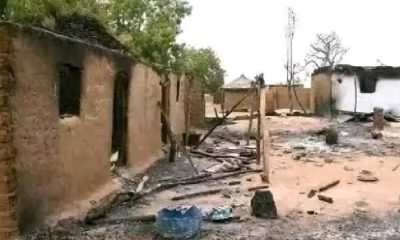
 News9 hours ago
News9 hours agoBLACK EASTER: Over 150 massacred in Plateau, Benue
-
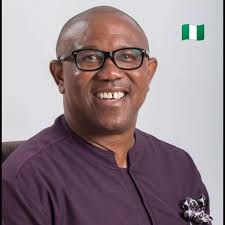
 News21 hours ago
News21 hours agoEASTER:Let’s use this period to pray for compassionate leaders -Obi
-
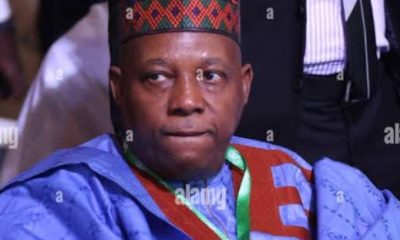
 News21 hours ago
News21 hours agoPresidency speaks on report that Shettima was denied access to presidential villa
-
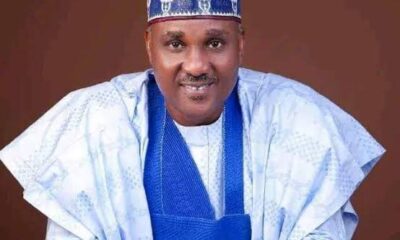
 News20 hours ago
News20 hours agoSpeaker Abbas Salutes Christians at Easter, Urges All To Emulate Selflessness of Jesus
-
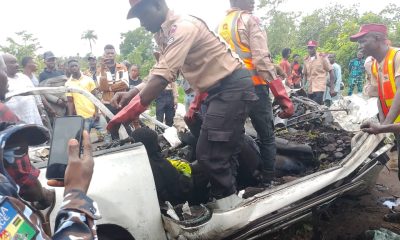
 News5 hours ago
News5 hours agoDouble tragedy: Father, three children, maid killed in Osun road crash
-
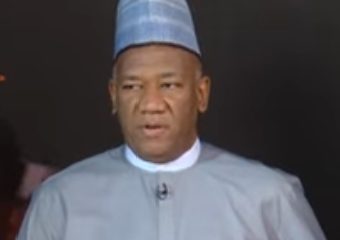
 News20 hours ago
News20 hours ago2027 : “If You’re Truly Smart, Don’t Bother To Contest -Datti tells Tinubu
-
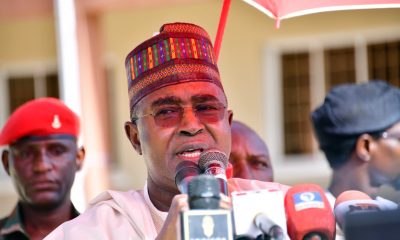
 News21 hours ago
News21 hours agoRemain resolute in fight against drug scourge, Marwa charges NDLEA officers(Photos)


